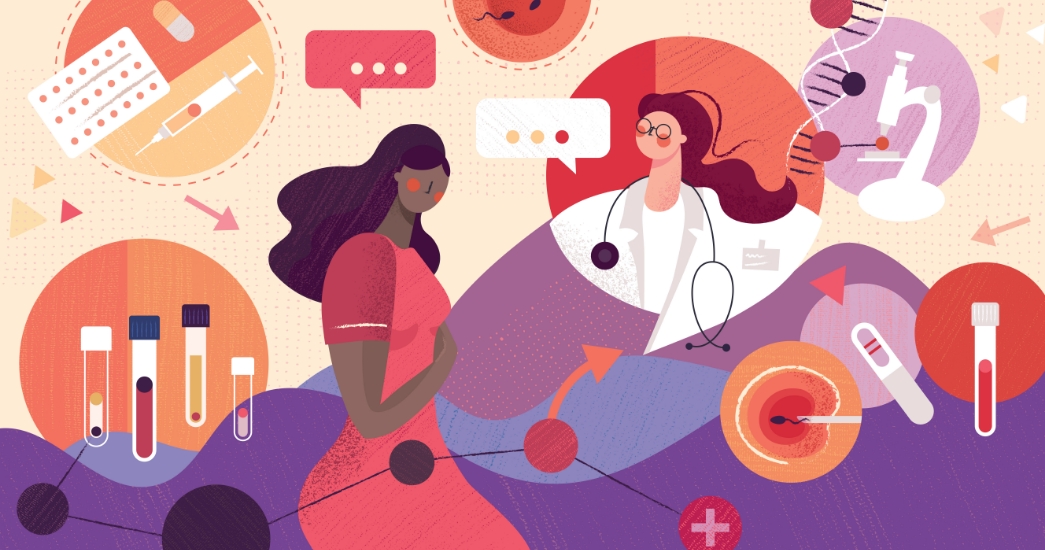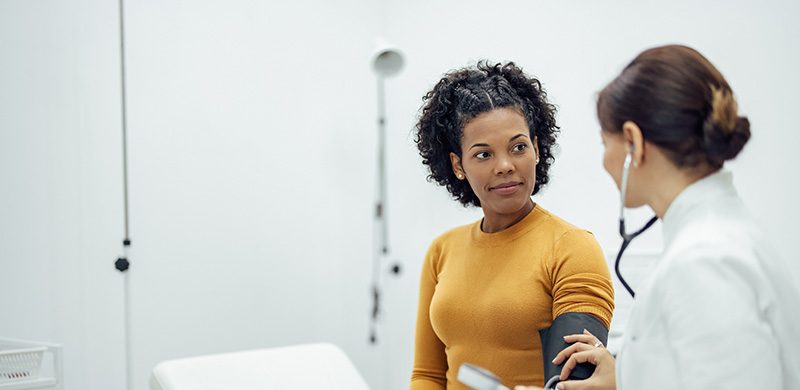
Published March 2023
In recent years, there’s been a heavy spotlight on women’s health. An increasing number of businesses have entered the femtech market, which includes a range of technology-based products focusing on health care for women. This new focus is a welcome change that will help address long overdue needs.
Here, we’ll look at the momentum in women’s health care and the ways that new advancements are helping to create better health outcomes for women.
Learn More >> Log into the Member Portal for Resources and Support
Digital solutions for every life stage.
With the women’s health app market projected to hit $3.9 billion by 2026, more and more digital solutions are being developed to help women better track their health throughout complex, and often expensive, life stages. Tools from companies like Ovia Health support women through reproductive health planning, pregnancy and parenthood, all the way into menopause. Ovia Health meets women where they are in their journey with tools, tips and access to medical experts. By offering customizable support and insight at every life stage, resources like Ovia Health help women better manage their health–and save on unnecessary medical expenses–for both themselves and their children.
Advancements for often overlooked conditions.
Some of the most common hormonal health issues, such as endometriosis, which affects about 190 million women, and polycystic ovary syndrome (PCOS), which impacts more than 116 million women, can go undetected for years. The associated pain can often be dismissed as menstrual cramps, ovarian cysts or other health issues. Digital tools and programs like Pollie and Endometrix aim to support women with education, tracking and monitoring, virtual consultations and specialized treatment options. Through research-backed, guided solutions, new health technologies are helping women regain control of their health and improve their overall well-being.
Catching common cancers early.
Despite improvements in breast cancer mortality rates over the past 30 years, nearly 13% of women are still diagnosed in their lifetime. Research shows that new multi-cancer early detection (MCED) tests, created by companies like GRAIL, can be an effective means of catching certain types of cancers, including breast, cervical and ovarian, in their earliest stages. MCED tests start with a simple blood draw and work by studying DNA fragments in the bloodstream. These fragments are shed by both normal cells and cancer cells. An abnormal pattern on one of the fragments detected by an MCED test may indicate cancer.
The test is precise enough to determine the type of cancer and can lead to an estimated 26% reduction in overall cancer deaths. In addition to focusing on early detection, companies like GRAIL are also developing other post-diagnostic applications to transform cancer care and decrease associated health care costs.
Learn More >> Find a Health Care Provider
While there is much to be done in the field of women’s health, recent innovations show positive ways that organizations are prioritizing preventive care, education, treatment and other resources for women. If you or a loved one are interested in learning about personalized options that may be available to you, connect with your employer or insurance carrier to learn more about solutions and offerings.
To confirm eligibility for any programs or services mentioned in this article as it relates to your specific health plan, please reach out to your account executive or HR benefits team. You may also speak to our member services team at (888)-333-4742 or by sending a secure email. And for plan details and other member resources, log in to the member portal.


